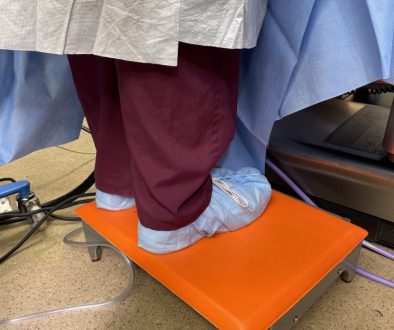What’s culture got to do with it?
It has been a lovely but very busy Fall season, during which I’ve given several invited talks on the topic of surgical ergonomics. Although the specific audience and focus of each talk has been different, a common theme has emerged. I’ve noticed that every time the subject of taking breaks during surgery is brought up, there is skepticism and maybe even a bit of worry.
Why is that? Surgeons have long been seen as the toughest of medical specialists, putting their personal needs aside to focus on the needs of their patients, forgoing eating, drinking and other bodily functions during long cases. Many of us trained while being told “Eat when you can, sleep when you can.” This can seem odd to an outsider but is often worn as a badge of honor.
Another common refrain I recall from early days of taking call was “You can call for help but it’s a sign of weakness”. This explains why surgeons who are having pain and other manifestations of work-related musculoskeletal diseases (WRMSD) don’t report their symptoms or seek help for them. This surgical “culture” is very ingrained and is probably the reason I’m often asked if I’ve experienced pushback (from OR administration etc.) for taking breaks and/or doing stretches in the OR.
Scheduled breaks are a well-recognized administrative control measure to reduce WRMSD, as shown here. If we are to truly embrace ergonomics in the OR, it goes without saying that we will have to abandon our old ways of thinking about ourselves and our profession. We need to look at ways to introduce breaks (and stretches) into our workdays. I would submit that the “pushback” is largely within our brains and the way we have been conditioned to think. In fact, the existing data shows that taking breaks does not change (and may also improve) mental focus and actually does not increase surgery duration. Our teams would rather have us in our best form and not continue to model or perpetuate the culture in which we were raised.
Let’s be like Nike and “just do it” when it comes to taking breaks in the OR. We owe it to our future selves, our current trainees and also to our patients.




